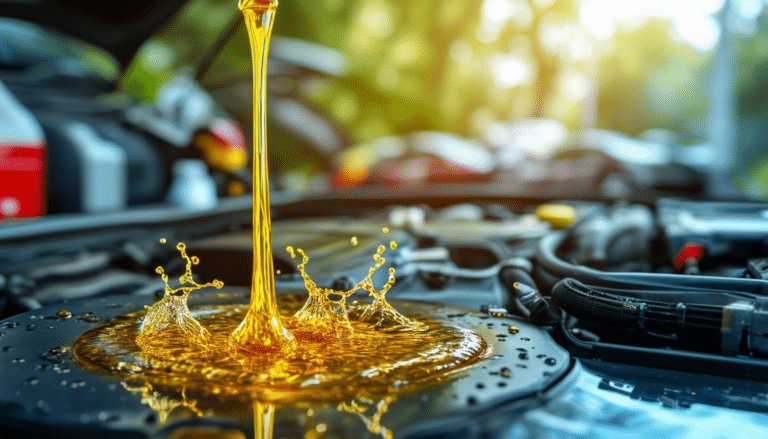La importancia de un mantenimiento constante para un bajo gasto en combustible
In today’s world, fuel costs have become a growing concern for many drivers. Therefore, keeping a vehicle in optimal condition not only ensures better performance but also translates to a significant savings on fuel. The importance of constant maintenance lies in its ability to optimize engine efficiency, resulting in a lesser need for fuel and a reduction in polluting emissions. This proactive approach not only benefits car owners financially but also contributes to a healthier environment.
Summary
The constant maintenance of a vehicle is essential to ensure a low fuel expenditure. Proper maintenance not only improves engine efficiency but also helps prolong the vehicle’s lifespan and minimize environmental impact. This article explores various maintenance practices that help optimize fuel consumption as well as the importance of conducting regular inspections.
The Importance of Regular Maintenance
The importance of regular maintenance cannot be underestimated when it comes to fuel efficiency. Periodic inspections ensure that all components of the vehicle are functioning properly. An engine in optimal condition can improve fuel performance, thus avoiding unnecessary expenses. Additionally, aspects such as air filters and fuel filters must be checked regularly, as a clogged filter can drastically reduce combustion efficiency.
Oil and Fluid Changes
Oil changes are an essential part of vehicle maintenance. They not only clean the engine of impurities but also ensure that it runs efficiently. Changing the oil with the appropriate frequency can increase fuel efficiency by up to 4%. Along with oil changes, it’s crucial to check the levels of other fluids such as coolant and brake fluid, as a balanced system also contributes to the vehicle’s performance.
The Impact of Tires on Fuel Consumption
The pressure of tires is another factor that influences fuel expenditure. Maintaining the correct pressure reduces rolling resistance, which improves fuel efficiency. Underinflated tires not only increase fuel consumption but also jeopardize driver safety. It is recommended to check tire pressure at least once a month to ensure optimal performance.
The Maintenance of the Fuel System
The fuel system is critical to the vehicle’s performance. Keeping it clean and free of obstructions allows for a steady flow of fuel to the engine, promoting more efficient combustion. Regular maintenance includes checking fuel pumps and injectors, as well as conducting periodic cleanings of the system. Neglecting this area can lead to a significant increase in fuel consumption and a reduction in engine power.
The Importance of Proper Driving
In addition to regular maintenance, the way a vehicle is driven also affects fuel expenditure. Maintaining a constant speed and avoiding sudden accelerations are practices that can improve efficiency. Abruptly changing speed can increase fuel consumption by up to 20%. Therefore, adopting a smooth and planned driving style is suggested to maximize the vehicle’s performance.
Preventive Maintenance Programs
Establishing a preventive maintenance program is essential for maintaining low fuel expenditure. These programs can include comprehensive inspection plans that address all the aspects mentioned above. By being proactive, not only are unforeseen expenses avoided, but it also ensures that the vehicle operates more efficiently throughout its lifespan.
Final Tips for Lower Fuel Consumption
To optimize fuel consumption, it is advisable to follow certain maintenance practices. This ranges from checking air filters to regularly checking tire pressure. Keeping the engine well-tuned and the fuel systems operational is vital. Remember that a well-maintained vehicle not only consumes less fuel but also has a lower environmental impact. For more information on how to carry out effective maintenance and how it influences fuel consumption, you can consult useful links such as this complete guide and maintenance techniques.
The Importance of Constant Maintenance for Low Fuel Consumption
The constant maintenance of vehicles is fundamental to achieving optimal efficiency in fuel consumption. Ignoring regular inspections can result in a significant decrease in operating economy. A clean and well-maintained fuel system allows for adequate fuel flow to the engine, ensuring efficient combustion and, therefore, reduced fuel expenses.
One of the most crucial aspects of maintenance is the inspection of filters. A clogged air filter can limit air access to the engine, causing it to use more fuel to maintain the same performance. Regularly replacing these filters can improve fuel efficiency by up to 10 percent. This is a straightforward task that can easily be forgotten but has a significant impact on the vehicle’s operation.
In addition to filters, maintaining tires is vital. Driving with underinflated tires increases rolling resistance, leading to greater fuel consumption. Maintaining proper pressure not only improves safety and handling of the vehicle but also significantly reduces gasoline expenses. Regular oil changes are also essential, as they contribute to the proper lubrication of engine components, allowing for smoother and more efficient operation.
In conclusion, implementing an adequate maintenance routine not only maximizes the vehicle’s efficiency but also represents considerable savings in the long run. The small efforts dedicated to caring for the car can lead to superior performance and a reduction in fuel expenditure, making the investment in maintenance worthwhile.





